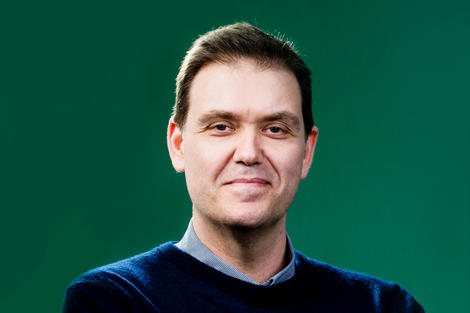
Factory Create, based in Altrincham UK, scored a number of animated hits in 2015, with two major launches for the BBC. Scream Street, based upon Tommy Donbavand’s comedy horror novels, arrived on CBBC in October 2015. The Factory team also revived the classic kids’ property Clangers for CBeebies. We caught up with Factory Managing Director Phil Chalk to see what 2016 holds for both the company and the wider kids genre.
K7: How was 2015 for Factory?
The last 12 months have been great. We doubled our businesses on the previous year, and developed the first 26 episodes of Clangers, which we picked up a BAFTA for. It was also a strong year for developing relationships with traditional broadcasters, including CITV and Disney. Looking ahead, for us 2016 will be about securing a second series of our shows, and so far it’s looking good. We’re producing a second lot of Clangers and we’re already in production on Scream Street for CBBC.
The likes of Amazon and Netflix are offering new space and new opportunities for shows…SVOD is making the industry very exciting.
We’re seeing the goodness that the [UK] tax credit is still bringing and more eyes on the UK from international broadcasters. The tax credit puts us on a level playing field with France and Ireland and makes us more attractive to the wider international audience.
It goes without saying that this year will bring the continued rise and influence of video on demand. The likes of Amazon and Netflix are offering new space and new opportunities for shows; filling in the gaps between traditional broadcasters and online content producers. SVOD is making the industry very exciting.
K7: What do you see as the main issues facing kids TV producers in 2016?
I think in 2016 the more established studios will start to feel the pressure and the threat of the freelancers working out of their back rooms. One-man-bands are freer to play around with storytelling and technology. They can start small, build their audience and test ideas.
As a business we’re interested in developing relationships and working with more talented freelancers. We could develop ideas together, that Factory could then take to long form and speak to traditional broadcasters – which the freelancers can find hard to connect with. We’ve got the infrastructure to develop the long-term shows, so it makes total sense that there is more collaboration between freelancers and the larger players.
K7: What do you think the year has in store for children’s television and animation?
At the end of the day it’s about great ideas, great characters, a strong narrative and an audience that feels passionate about it. Across the industry we’re all still searching for the next big thing, the next Peppa Pig or Bob the Builder, but for this to happen we need to convince the likes of Nickelodeon, Disney and CITV to invest more in kids’ TV.
I think companies will be pushing to develop more rights and a stronger hold on their materials intellectual properties, to enable them to keep more control over this much needed revenue streams. It’s likely we’ll see the rise in short form content and how production companies can monetise it.
K7: Internationally where should the UK be looking to develop new collaborations and commissions?
Fred Seibert, the founding father of Frederator Studios (Adventure Time), raised the bar. He incubated and hatched shows online before taking them to a larger offline market. There are things the UK industry can learn here. The biggest thing that needs to change is the size of budgets. Our industry always follows the USA when it comes to how money much is allocated children’s TV. Over here we prefer to back technology led projects and ones that attract large viewing figures.
China and Japan are really hard to crack – both culturally and the broadcasting systems are very partisan to their own industry, which is laudable – but makes it difficult to break into. Having said that, the UK makes world-class animation and if we were given more time and big budgets we could compete confidently more with the Asian market. We just need to prove it.
This interview first appeared in the January 2016 edition of The K7 Little Report, available as part of a subscription to K7 Media’s services. You can also watch an earlier interview with Phil Chalk via the K7 YouTube channel.
For more on Factory Create head to www.factorycreate.com
Helen Dugdale is an independent media specialist writing about children’s content for K7 Media.
